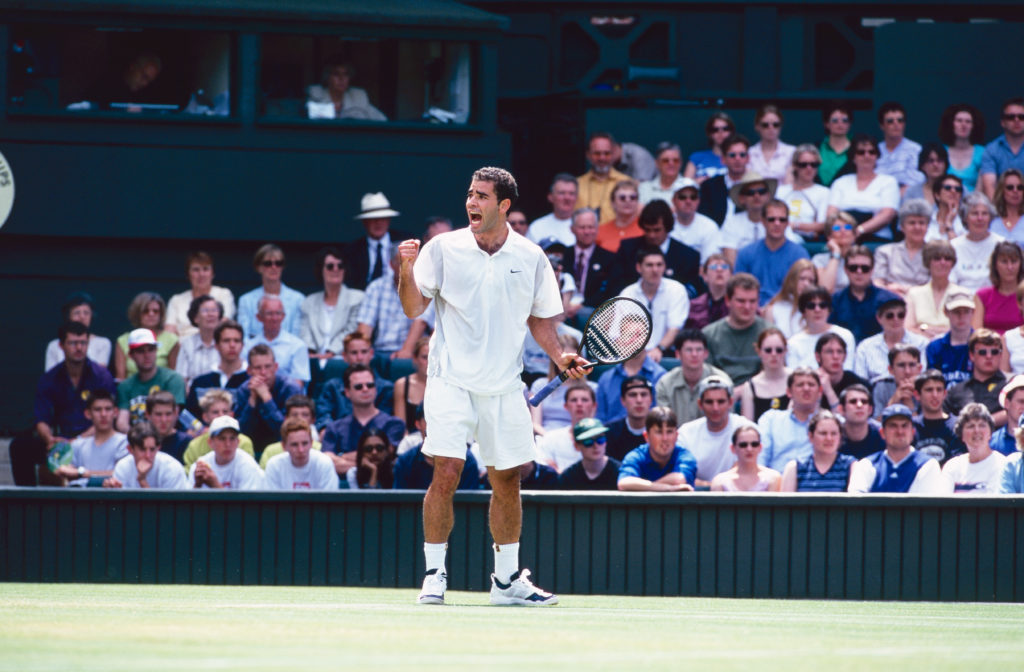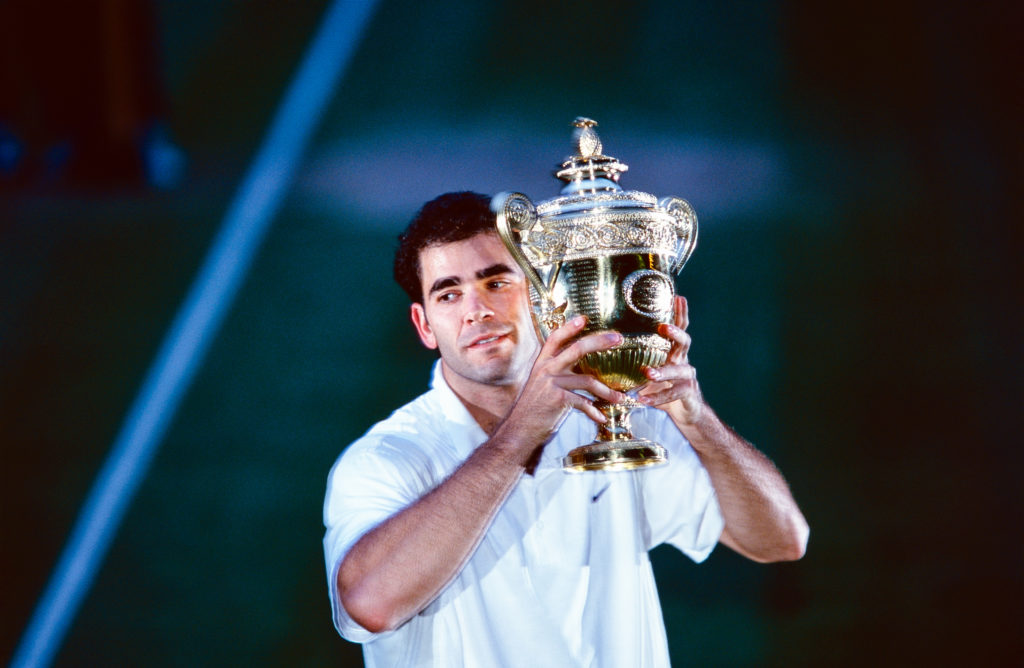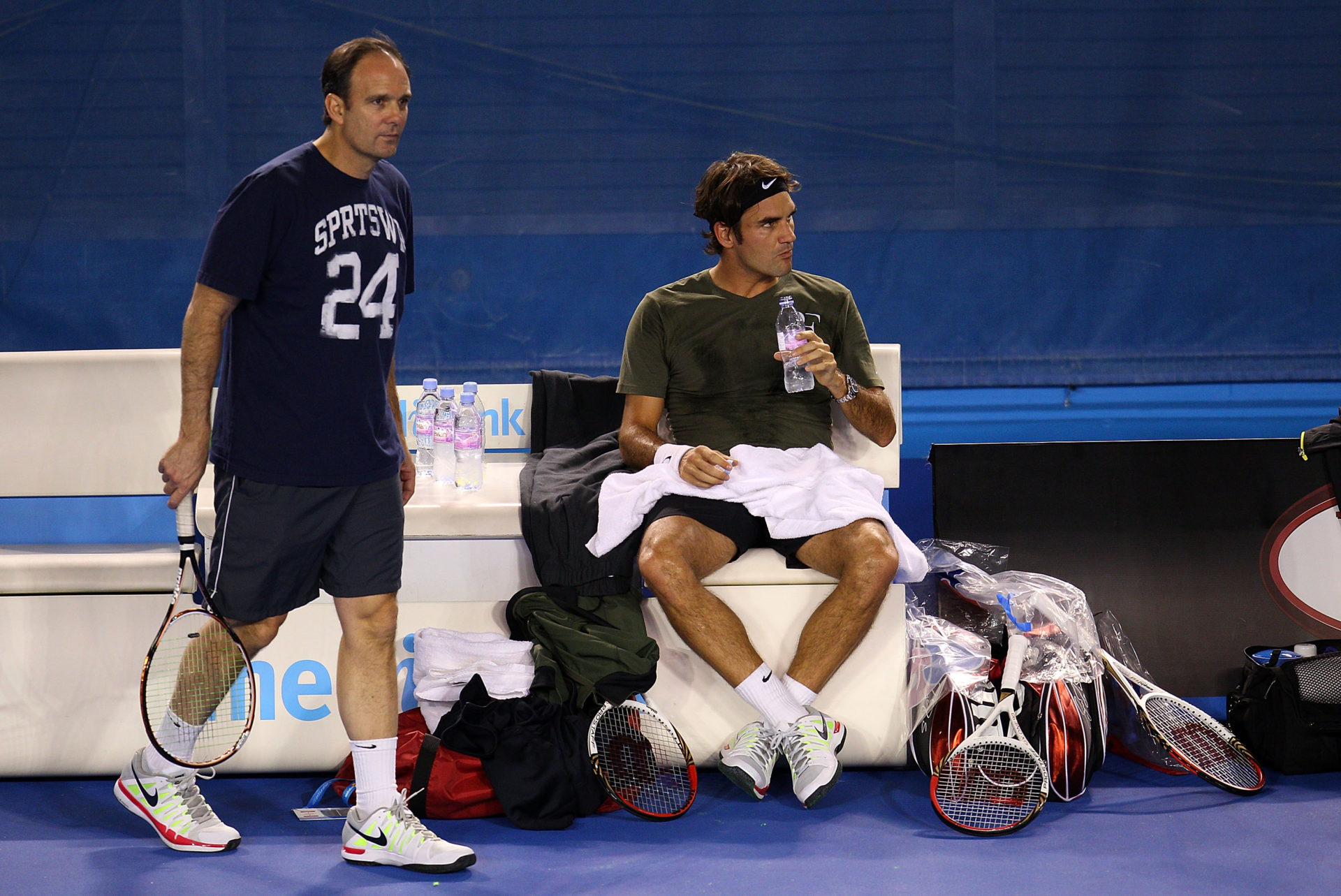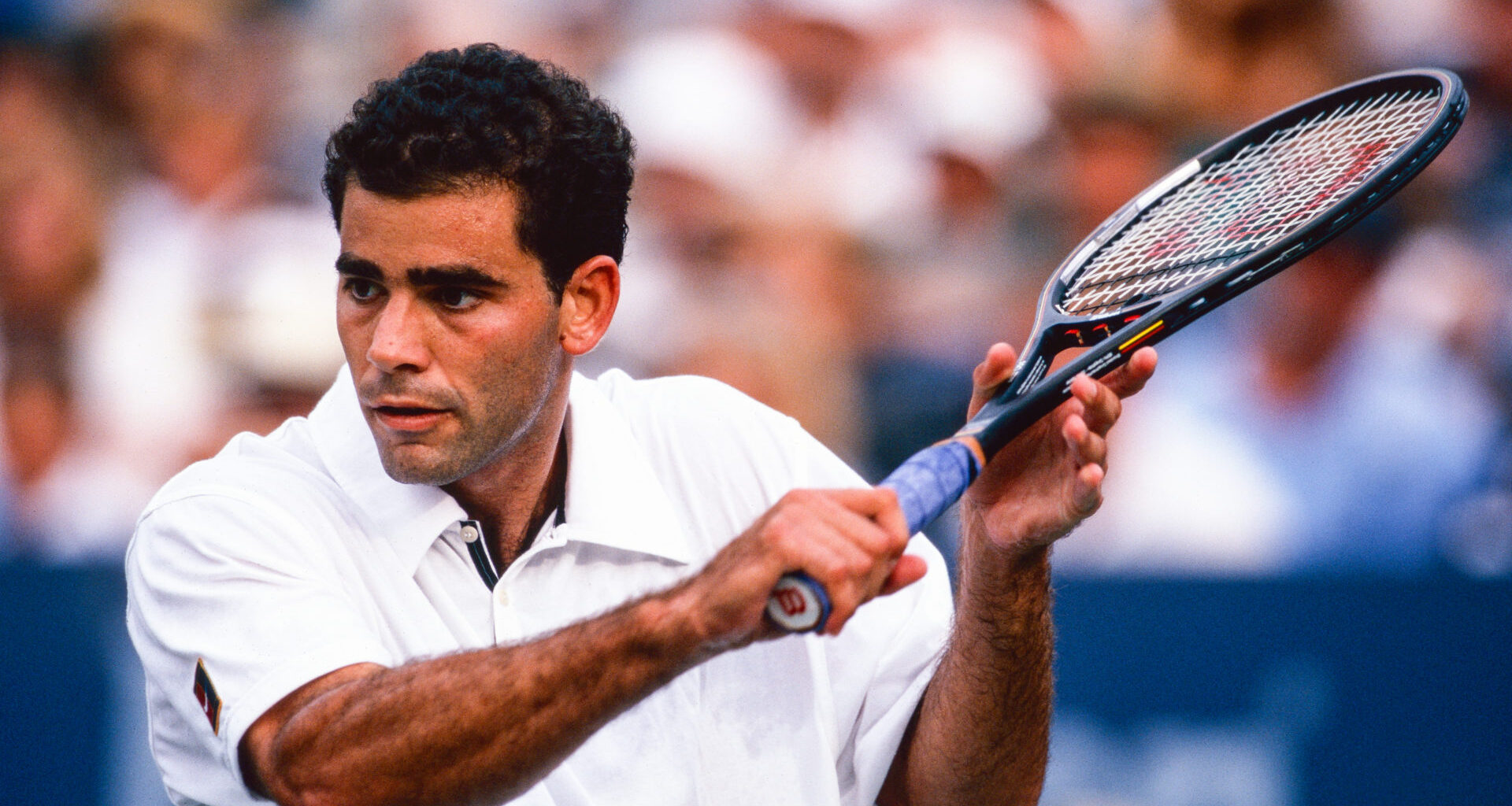Pete Sampras has gone down in tennis history thanks to his glittering career, with the American remaining one of the most respected names in the sport.
Martina Navratilova thinks Sampras had the best serve ever, which undoubtedly helped him win 14 Grand Slam titles.
Sampras also lost four Grand Slam finals, and reached number one in the ATP Tour rankings, having won 64 career titles.
Wimbledon was the biggest Grand Slam for Sampras, a tournament he won on seven occasions, behind only the eight of Roger Federer.
Those seven titles account for half of his Grand Slam titles, with Sampras also winning the US Open five times and the Australian Open twice.
 Photo by Simon Bruty/Anychance/Getty ImagesWhat ‘boring’ Pete Sampras was really like in the locker room
Photo by Simon Bruty/Anychance/Getty ImagesWhat ‘boring’ Pete Sampras was really like in the locker room
Intriguingly, however, the American experienced life off the court in a completely different manner, with BBC Sport having carried out a deep dive on Sampras five years ago.
It was written of him in 2020: “By those who know him well, Sampras is described as an introvert. He never craved stardom and never felt fully comfortable in the public eye.
READ MORE: The Andre Agassi and Pete Sampras on-court argument that left Roger Federer feeling ‘awkward’
“Others who shared locker rooms with him, including at Wimbledon in 2000, say he rarely mixed with his fellow players. They didn’t see him as aloof, though. He wasn’t disliked.
“Unflattering comments made about him – Sampras was often accused of being “boring” – did not register.”
Former world number two Tommy Haas also shared his take on the icon, saying: “He was an idol for many players and many looked up to him, trying to see what he did as a champion.
“He would never eat anywhere near the facility. If you did see him he would only be with his team. He was quiet and kept himself to himself.”
 Photo by Simon Bruty/Anychance/Getty ImagesWhat Paul Annacone once said Pete Sampras was ‘incredible’ at doing
Photo by Simon Bruty/Anychance/Getty ImagesWhat Paul Annacone once said Pete Sampras was ‘incredible’ at doing
While it wasn’t exactly a popular strategy for many, Sampras’s introverted approach clearly worked wonders for his tennis career.
He has gone down as one of the all-time greats, and undoubtedly has the respect of those both in and out of the sport.
Helping him achieve plenty of success was Paul Annacone, who spent several years coaching the American great.
Another respected figure in the tennis world, Annacone also coached Roger Federer and Tim Henman, and is currently working with ATP number four Taylor Fritz.
 Photo by Scott Barbour/Getty Images
Photo by Scott Barbour/Getty Images
Sharing his verdict on Sampras, the coach said: “He is pretty amazing mentally, he might be the most laser-focused person or athlete I’ve ever been around.
“In terms of putting his mind on a goal, and then being really clear about what he needs to do to give himself the best chance of achieving it, there is no one better.
“One of my big coaching mantras is ‘how well do you deal with adversity?’ As an individual athlete, when you don’t have teammates to help you, you’re kind of naked out there.
“If you’re having a bad day, you’re hurt or you’re sick, or you’ve had a fight with your partner, or you’ve lost your passport, whatever, you’ve got to figure it out.
“How good are you on your bad days? That’s what defines you. Pete was incredible at that. He was able to manage those scenarios.
“He’d just go out and play, having not hit a ball for two days, and walk on the court and play a match. That’s kind of what he did all the way into the final.
“When he wins, Pete has a big smile on his face and he processes a lot in his mind. He’s not like ‘give me a big bottle of champagne and let’s have tonnes of people round’.
Sampras won eight of his 14 majors with Annacone by his side between 1995 and 2000, with the latter recalling of the former’s Wimbledon final success at the turn of the century: “We just sat and talked all night.
“He had an amazing glow about him, thinking about what he had accomplished and about what he had been able to do. It was a really great reflection of history – his history.”
